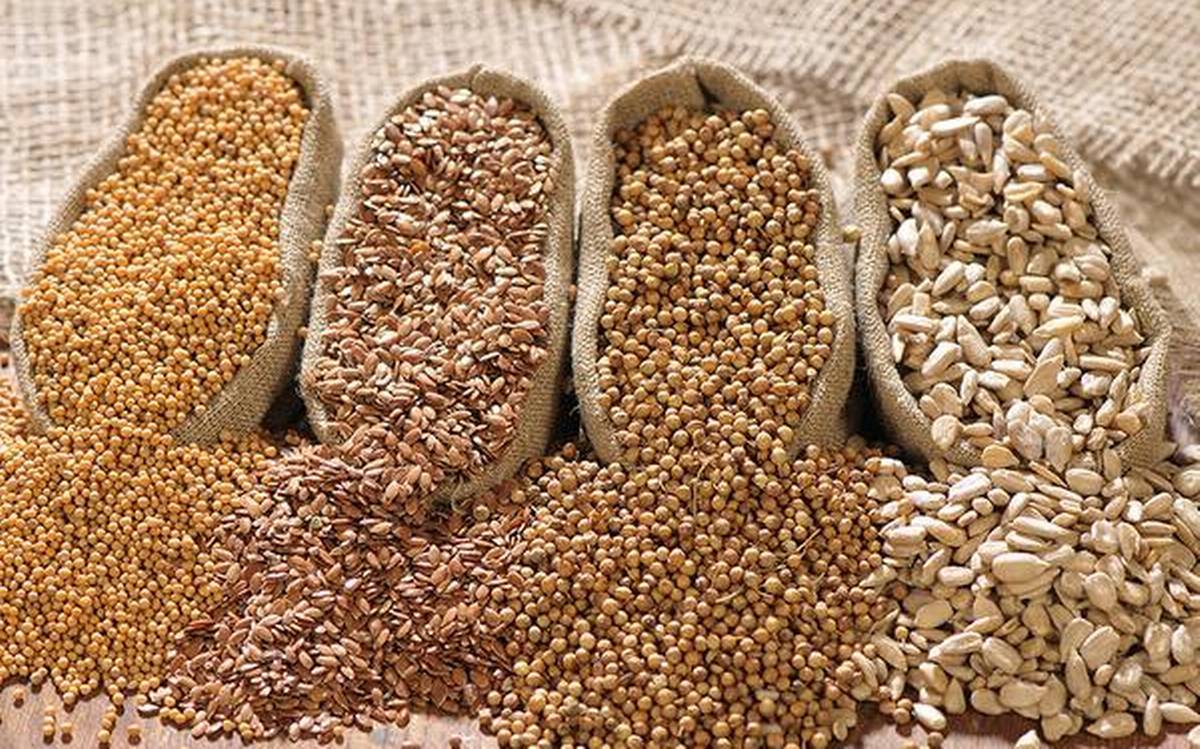The Indian government has made a significant step toward self-reliance in edible oils production by launching the National Mission on Edible Oils-Oilseeds (NMEO-Oilseeds). With an approved outlay of ₹10,103 crore for the period 2024-25 to 2030-31, the mission aims to address India’s heavy dependence on imported edible oils by significantly boosting domestic oilseeds production. The Cabinet’s decision reflects a broader push for Atmanirbharta (self-reliance), particularly in the agricultural sector, and seeks to reduce the country’s reliance on edible oil imports, which currently account for 57% of domestic consumption.

The NMEO-Oilseeds initiative is a part of the Krishonnati Yojana (KY), an umbrella scheme that brings together various agricultural programs, including a separate one for palm oil. The primary objective of NMEO-Oilseeds is to increase domestic oilseeds production through a combination of technological innovations, better farming practices, and expanding the area under cultivation for oilseeds. The government aims to increase primary oilseed production from 39 million tonnes (recorded in 2022-23) to 69.7 million tonnes by 2030-31.
In a post shared on social media platform X (formerly Twitter), Prime Minister Narendra Modi hailed the mission as a significant step toward self-reliance. He emphasized how it would support hardworking farmers and promote sustainable agricultural practices. Modi’s remarks align with the government’s broader focus on promoting Atmanirbharta across different sectors, aiming to reduce the country’s dependence on imports and boosting local production.

Focus on Key Oilseeds and Secondary Sources
NMEO-Oilseeds will concentrate on boosting the production of several key primary oilseed crops. These include rapeseed-mustard, groundnut, soybean, sunflower, and sesamum. These crops are critical as they form the backbone of India’s edible oil production and contribute significantly to the domestic supply. Increasing the production of these crops will be essential to the mission’s success.
Additionally, the mission will also improve the efficiency of oil extraction from secondary sources, such as cottonseed, rice bran, and tree-borne oils. These secondary sources provide an untapped or underutilized opportunity for increasing edible oil availability in the country. Enhancing collection and extraction efficiency from these sources will ensure that India can extract more oil from the crops it already cultivates.

Ashwini Vaishnaw, the Union Minister for Information and Broadcasting, elaborated on the Cabinet’s decision, emphasizing the strategic importance of increasing both the quantity and the quality of oilseed production. According to Vaishnaw, the mission’s success will hinge on high-yielding, high oil content seed varieties. These varieties will be promoted across the country to improve productivity and maximize the output from the same amount of cultivated land.
The mission has a strong emphasis on expanding cultivation areas for oilseeds, particularly by promoting oilseeds farming in rice fallow areas—regions where land remains unused after the rice harvest. This strategy is designed to make more efficient use of available agricultural land and increase total oilseeds production. Additionally, the government plans to encourage intercropping, where farmers grow oilseeds alongside other crops to optimize land use and boost productivity.
To ensure that farmers can adopt new practices and access the latest technological innovations, the mission will introduce a range of technological interventions. These will include promoting mechanization for oilseed cultivation and harvest, providing training and support for farmers, and enhancing the country’s research and development efforts in agriculture. By incorporating modern farming techniques and innovations, the NMEO-Oilseeds mission aims to make India a global leader in oilseeds production.
A critical component of the mission is the availability of quality seeds, which are necessary to achieve the desired increase in productivity. The NMEO-Oilseeds mission will introduce an online five-year rolling seed plan, which will facilitate advance tie-ups between states and seed-producing agencies. This plan is expected to streamline the process of sourcing and distributing high-quality seeds to farmers, ensuring that they are available well in advance of the planting season.
This initiative will enable states to establish partnerships with cooperatives, farmer producer organizations (FPOs), government, or private seed corporations, thus ensuring a steady supply of high-yielding seeds. Timely access to quality seeds is crucial for achieving the mission’s goal of increasing oilseeds production by 30 million tonnes by 2030-31.
The NMEO-Oilseeds mission is expected to have a transformative impact on Indian farmers, particularly those involved in oilseed cultivation. By increasing productivity and reducing dependency on imports, the mission will offer farmers a more secure and profitable future. Additionally, by encouraging sustainable farming practices, the mission aligns with the government’s broader efforts to promote environmentally friendly agriculture.
For the Indian economy, reducing reliance on edible oil imports will have significant benefits. The country currently spends billions of dollars annually on importing edible oils to meet domestic demand. By boosting domestic production, the NMEO-Oilseeds mission can help reduce this expenditure and improve the trade balance. Furthermore, increased production will provide a boost to local agribusinesses, creating jobs and improving livelihoods in rural areas.
While the mission’s objectives are ambitious, there are several challenges that will need to be addressed. These include ensuring that farmers adopt the new seed varieties and farming practices, managing water resources effectively in expanding cultivation areas, and addressing the potential impact of climate change on oilseed farming.
To tackle these challenges, the government will need to work closely with state governments, research institutions, and the private sector. The success of the mission will depend not only on technological innovations but also on effective implementation and monitoring at the ground level.
The National Mission on Edible Oils-Oilseeds (NMEO-Oilseeds) represents a critical step toward making India self-reliant in the production of edible oils. With a focus on increasing productivity, expanding cultivation, and introducing technological innovations, the mission aims to boost domestic oilseeds production from 39 million tonnes to 69.7 million tonnes by 2030-31. By reducing dependency on imports and promoting sustainable farming practices, NMEO-Oilseeds has the potential to significantly improve the lives of Indian farmers and strengthen the country’s agricultural sector. However, successful implementation will require overcoming several challenges, including effective resource management and encouraging farmers to adopt new technologies. Ultimately, the mission is a positive step toward achieving Atmanirbharta in edible oils and securing a brighter future for India’s farmers.

